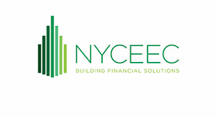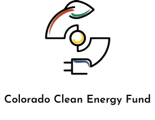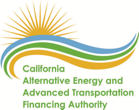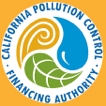Clean Energy Accelerator
What It Is
The Clean Energy & Sustainability Accelerator is an independent, nonpartisan nonprofit finance entity that will operate as the U.S. national green bank. It will use public funds to mobilize more private investment to accelerate deployment of clean and resilient infrastructure in every community in the U.S.
It is a no-regrets, proven, practical implementation tool that will create jobs, strengthen communities, create new businesses and lower greenhouse gas emissions. By prioritizing 40 percent of funding for communities in greatest need of jobs, it will support disadvantaged communities. All that is needed to get it started is funding from Congress.
What It Will Accomplish
A $100B upfront capitalization of the Accelerator from Congress will:
Support 2.5B metric tons of cumulative emissions reductions over its first 10 years
Put America on a path to net zero – by 2030 the Accelerator will deliver one-fifth of all emissions reduction needed on path to net zero by 2050
And it will accomplish all these without raising energy costs and while prioritizing investments in disadvantaged, climate-impacted and communities of color.
Drive $463B of total investment in 4 years due to private sector leverage
Generate $884B of total investment over 10 years due to recycling and borrowing on capital markets – not with the full faith and credit of the U.S. government
Create 4M jobs in 4 years, where 2/3 of those jobs are in roles that can be filled right away even during covid and are open to Americans have many skill sets
Support 2.5B metric tons of cumulative emissions reductions over its first 10 years
Put America on a path to net zero – by 2030 the Accelerator will deliver one-fifth of all emissions reduction needed on path to net zero by 2050
And it will accomplish all these without raising energy costs and while prioritizing investments in disadvantaged, climate-impacted and communities of color.
Drive $463B of total investment in 4 years due to private sector leverage
Generate $884B of total investment over 10 years due to recycling and borrowing on capital markets – not with the full faith and credit of the U.S. government
Create 4M jobs in 4 years, where 2/3 of those jobs are in roles that can be filled right away even during covid and are open to Americans have many skill sets
Why It Can Pass in 2021
It did twice in 2020
The House of Representatives passed legislation to fund the Accelerator TWICE in 2020 – once as part of an infrastructure package and again as part of an energy innovation package. The prospects of passage in 2021 are even stronger.
Green Goes Red
Demand for state green banks has never been higher. And it is not just blue states. States of all political leanings want the green bank model. The only thing missing is the funding. The primary task for the Accelerator will be to help start and then fund new green banks in every state to support local, community-driven investment.
Voters of Both Parties Support the Accelerator
Seven out of 10 voters want Congress to invest in clean energy infrastructure as a way to kill two birds with one stone – create jobs and fight climate change. And two out of three voters specifically want Congress to fund the Accelerator. This is true in fossil fuel and swing states.
70%
of voters want Congress to invest in clean energy
67%
of voters specifically want Congress to fund the Accelerator
Additional Bipartisan Support
- The bill is endorsed and co-sponsored by Vice President Harris.
- President Biden’s clean energy and environmental justice plans specifically call for a green bank-like financing program.
- 25 governors in the bipartisan US Climate Alliance requested that Congress create and fund a national green bank.
- Was included in recommendations in the House Select Committee and the Senate Special Committee on the Climate Crisis action plans.
How It Works and Creates Jobs
The non-partisan, non-profit uses the proven green bank model to speed up the clean energy transition.
The initial public sector funding to capitalize the accelerator is paired with additional private sector dollars (co-investment), usually at least three to five private dollars for every public dollar.
Since the funds are loaned and repaid, the funding can be recycled for future projects and does not add to the federal debt.

It does this in nine ways:
- Accelerating Renewable Power Replacement of Coal-Fired Plants for Rural Co-Op Bill Relief
- Accelerating Renewable Replacement of Coal-Fired Plants in Monopoly IOU Territory and Supporting Community Transition
- Expanding Utility Scale Wind Markets and Increasing Private Investment in Regions with Less Wind
- Aggregating Small PACE-Financed Commercial Building Upgrades for Commercial Resale
- Financing C&I, Non-Profit and Municipal Building Small-Scale Rooftop Solar PPAs
- Building Small Renewable Projects with Upfront Long-Term Renewable Energy Credit-Based
- Accelerating Community Solar Construction with Interconnection Bridge Loan Financing
- Electrifying Homes in Frontline Communities to Reduce Energy Costs and Improve Public Health
- Supporting Community Solar Project Finance Targeting LMI Households
- Lowering Energy Costs for LMI Homeowners with Rooftop Solar Lease + Energy Efficiency Savings
- Opening Access to LMI Residential Clean Energy Upgrades through On-Bill Financing, such as PAYS
- Upgrading LMI Homes for Resilience + Clean Energy to Reduce Monthly Costs, Increase Comfort and Harden
- Financing Public Benefit Microgrids to Ensure Continued Safety and Service During Power Outages
- Solar + Storage Financing for LMI Households & Communities
- Aggregating Small PACE-Financed Commercial Building Upgrades for Commercial Resale
Electrifying Homes in Frontline Communities to Reduce Energy Costs and Improve Public Health
Lowering Energy Costs for LMI Homeowners with Rooftop Solar Lease + Energy Efficiency Savings
Opening Access to LMI Residential Clean Energy Upgrades through On-Bill Financing, such as PAYS
Upgrading Affordable Multifamily Housing for Energy Efficiency
- Incentivizing Electric Vehicle VMT for High Mileage Rideshare Drivers to Maximize Transportation
ESCO-Style Financing for Public Bus Fleet Conversion from Gasoline to Electric
Financing Heavy-Duty Truck Fleet Conversion to Clean Alternative Fuel Source
- Financing Home Heating System Electrification
Accelerating Community Solar Construction with Interconnection Bridge Loan Financing
Electrifying Homes in Frontline Communities to Reduce Energy Costs and Improve Public Health
Targeted Workforce Development for Clean Energy Job Creation in Electrification
Supporting Community Solar Project Finance Targeting LMI Households
Lowering Energy Costs for LMI Homeowners with Rooftop Solar Lease + Energy Efficiency Savings
Opening Access to LMI Residential Clean Energy Upgrades through On-Bill Financing, such as PAYS
Upgrading Affordable Multifamily Housing for Energy Efficiency
ESCO-Style Financing for Public Bus Fleet Conversion from Gasoline to Electric
Financing Heavy-Duty Truck Fleet Conversion to Clean Alternative Fuel Source
In Action Across a Dozen States
During the last decade, the 15 Green Banks that exist today have generated $5.3 billion in clean energy investment since 2011, with $1.5 billion of this investment taking place in 2019 alone. Together, they have created tens of thousands of jobs.
$5.3B
in clean energy investment since 2011
10,000+
created tens of thousands of jobs



















Webinar: Green Banks and the IRA: How States Can Leverage Funding for Climate Action
Oct 31, 2022
Clean Energy & Sustainability Accelerator Names Oswaldo Acosta to Board of Directors
Jun 8, 2022
Coalition for Green Capital Announces Departure of Executive Director Jeffrey Schub
Apr 15, 2022
Citing Rising Costs for Families and Volatile Foreign Energy Markets, Over 200 Companies and Groups Call on Biden to Support a National Green Bank
Mar 17, 2022
News Stories
Webinar: Green Banks and the IRA: How States Can Leverage Funding for Climate Action
Oct 31, 2022
Clean Energy & Sustainability Accelerator Names Oswaldo Acosta to Board of Directors
Jun 8, 2022
Coalition for Green Capital Announces Departure of Executive Director Jeffrey Schub
Apr 15, 2022
Citing Rising Costs for Families and Volatile Foreign Energy Markets, Over 200 Companies and Groups Call on Biden to Support a National Green Bank
Mar 17, 2022
PV Magazine: National Clean Energy and Sustainability Accelerator bills introduced in House and Senate
Feb 8, 2021
S&P Global: House Dems’ bill targets clean power by 2035 with big grid, generation changes
Mar 2, 2021
How to Get Involved and What You Can Do
Contact your U.S. senators and U.S. representatives to let them know you want the Clean Energy Accelerator to be included in any stimulus bill to create jobs and build clean energy infrastructure.

We especially need the following senators to hear from you:
- Lisa Murkowski (Alaska)
- Joe Manchin (W.Va.)
- Shelley Moore Capito (W.Va.)
- John Hickenlooper (Colo.)
- Mark Kelly (Ariz.)
- Susan Collins (Maine)
- Angus King (Maine)
- Tom Tillis (N.C.)
- Richard Burr (N.C.)
Fact Sheets
Overview documents
Accelerator Overview One-Pager
Accelerator Overview Slide Deck
Political and public support
Latest Polling Results (Nov 2020)
Letter of Support from Nearly 100 Groups for the Accelerator
A Bipartisan Track Record for State Green Banks
Detailed policy documents
$21 Billion Project Pipeline from Existing Green Banks
Independent Report from Analysis Group on Accelerator’s Economic Recovery Potential
Independent Report from Brattle Group on Accelerator’s Carbon Reduction Impact
Policy Analysis of the Accelerator
2020 Annual U.S. Green Bank Industry Report
Accelerator legislative text in House Bill, Senate Bill.